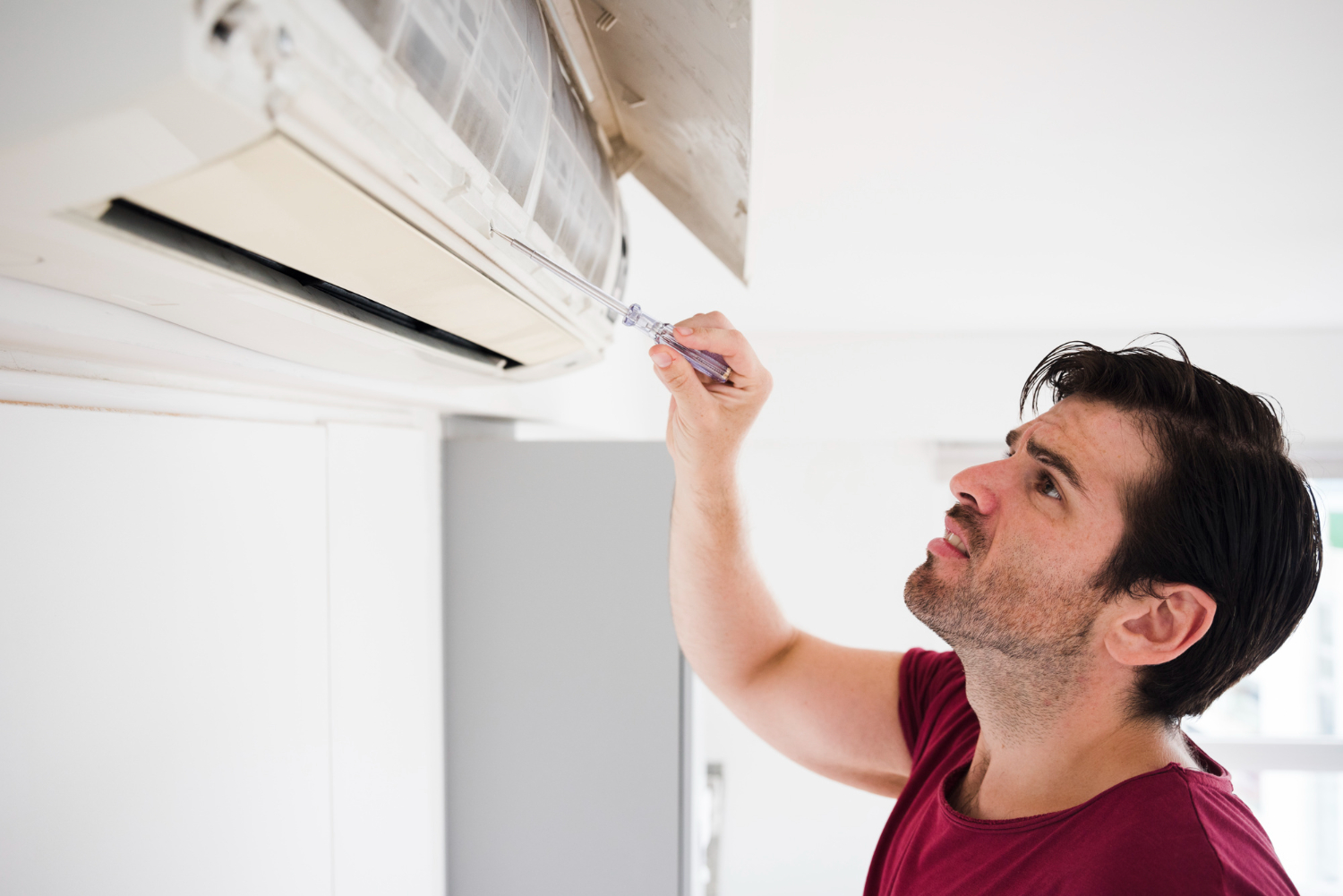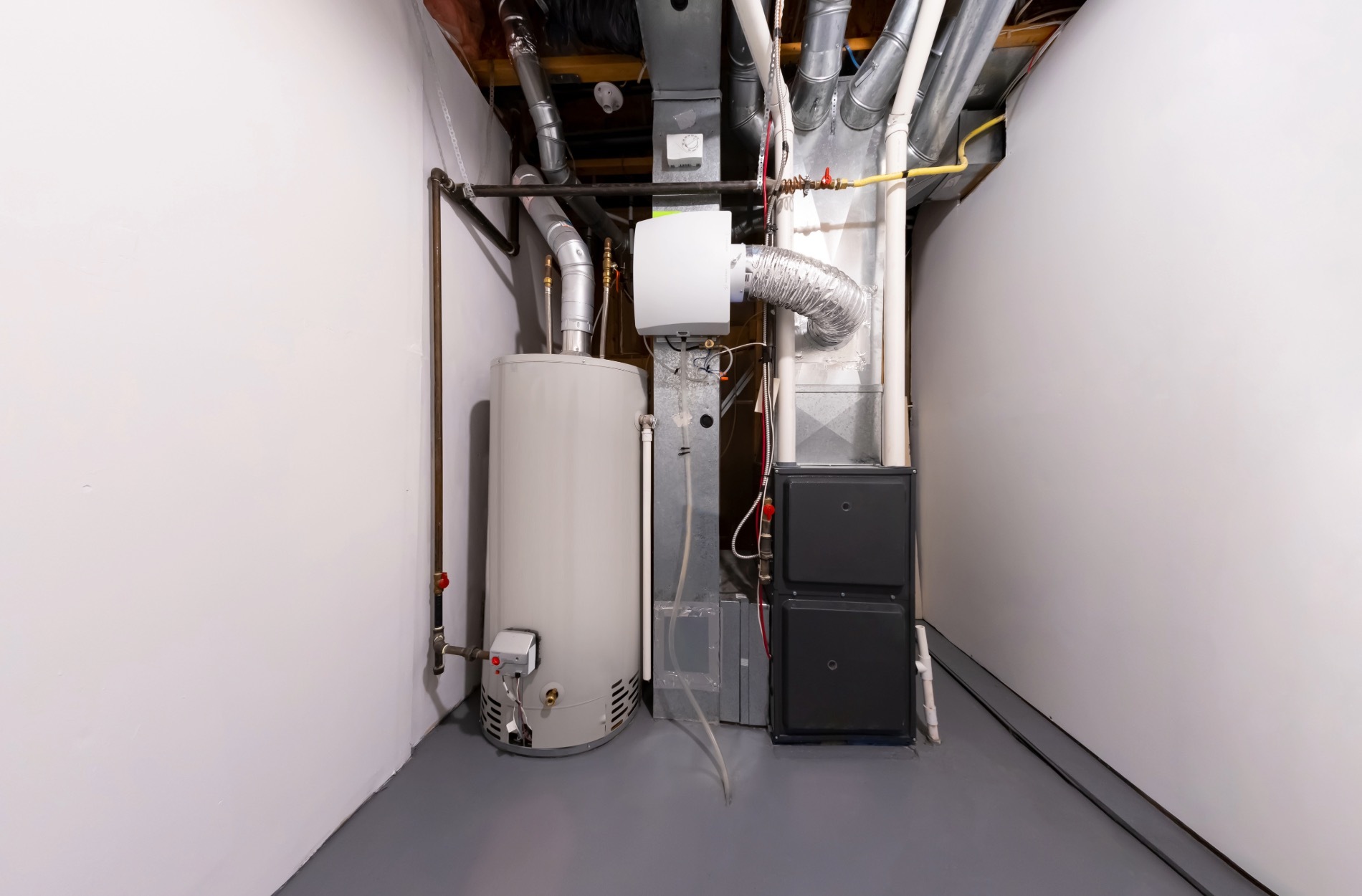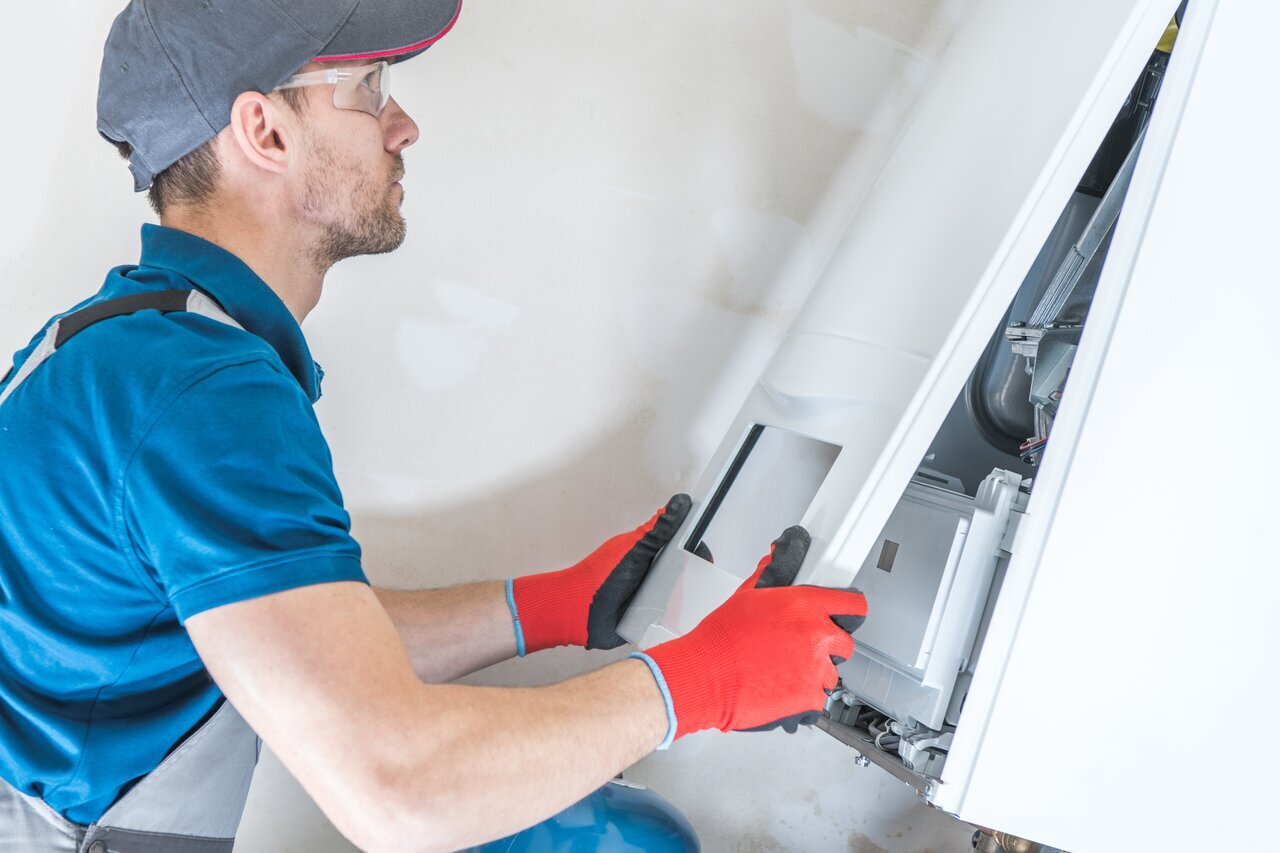There’s nothing worse than coming home to a hot, stuffy house in summer or an icy cold home in winter and finding out that your HVAC system has broken down. Don’t put yourself through this nightmare! Invest in preventive maintenance for your HVAC system before a simple issue turns into a big problem.
In this blog, we’ll dive into the importance of regular preventive maintenance for your HVAC system and how it can benefit you year-round. We’ll also discuss the most effective preventative measures you can take to ensure your HVAC is up and running perfectly.
What Is An HVAC Preventive Maintenance Plan?
An HVAC preventive maintenance plan is a set of regular inspections and preventative services performed on HVAC systems to ensure the system runs efficiently, lasts longer, and does not need expensive repairs or replacement. It is an effective way to ensure your home or office’s climate-control system continues running in optimal condition.
The plan typically involves a bi-yearly visit from a specialist to perform the manufacturer-required maintenance items on your system. There may be more frequent visits depending on the size and type of your HVAC setup. For example, commercial buildings with large-scale HVAC systems will require from more frequent visits, where all components are carefully inspected, cleaned, and tested.
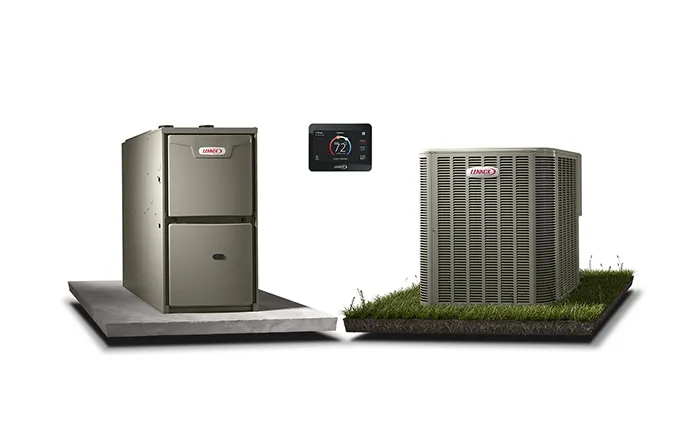
The preventive maintenance plan is typically customized to the specific needs of the HVAC system and may include tasks such as:
- Inspection of all system components, including belts, bearings, motors, and electrical connections.
- Cleaning of system components, including coils, ducts, and filters.
- Lubrication of moving parts to reduce friction and wear.
- Calibration and adjustment of system controls to ensure optimal performance.
- Replacement of worn or damaged components before they cause a system failure.
Why Is HVAC Preventive Maintenance Important?

Here are some of the top 6 benefits of investing in preventive maintenance services:
1. Reduced Breakdowns And Repairs
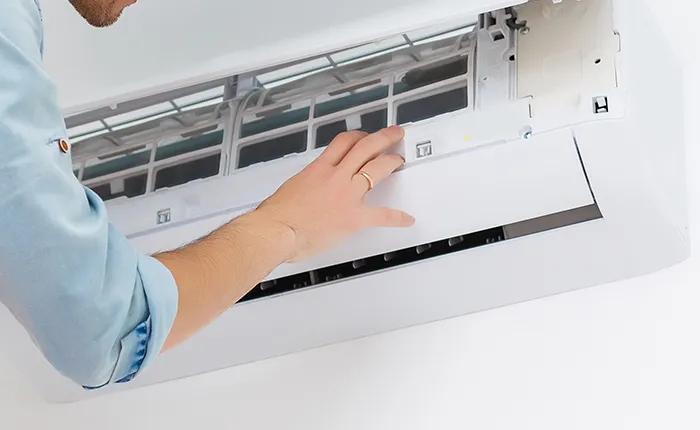
Many factors contribute to poor air quality, including dust and dirt buildup in HVAC systems. Insufficient air exchange between indoor and outdoor spaces can result in a buildup of pollutants such as dust, pollen, bacteria, and mold. Even indoor activities such as cooking, smoking, and using cleaning products can contribute to poor air quality. All these factors can lead to the circulation of volatile pollutants and allergens, which can cause respiratory problems, eye irritation, headaches, and other issues.
Regular preventive maintenance for your HVAC system, including changing filters and checking the ductwork, can help reduce the buildup of contaminants and improve indoor air quality.
2. Improved Energy Efficiency
Keeping your HVAC system in good working order isn’t just essential for keeping your home comfortable. It can also be a great way to make sure you are getting the most energy efficiency out of it. By regularly repairing or replacing the air filters of your air conditioner, adjusting thermostats, and maintaining other components as part of an A/C preventive maintenance plan, you can reduce energy consumption and receive long-term cost savings on your utility bills.
3. Extended System Life
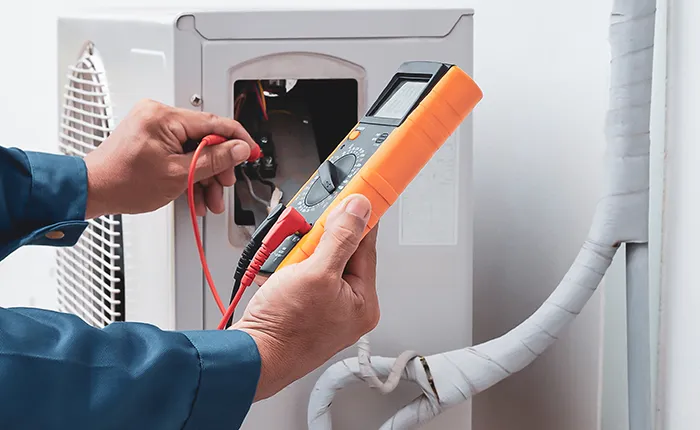
A well-maintained HVAC system can last much longer than a neglected one. Regular preventive maintenance for air conditioners and other equipment can help identify and address issues before they cause significant damage to your system, which can extend its lifespan and save you money on premature replacement.
4. Better Indoor Air Quality
Improving your home or workplace’s indoor air quality is critical to protecting your health and well-being. Many factors contribute to poor air quality, such as a lack of regular preventative AC maintenance and other HVAC systems. This can lead to the circulation of volatile pollutants and allergens, which can cause respiratory problems, eye irritation, headaches, and other issues.
5. Lesser Carbon Foot Print
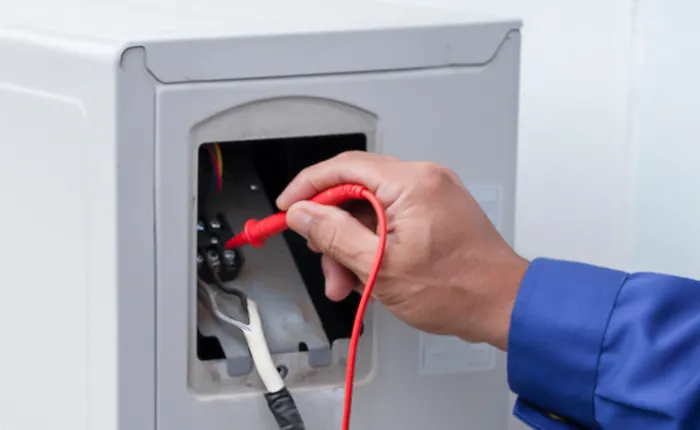
For those concerned about their green footprint, one of the best ways to reduce your carbon footprint is to ensure your HVAC system runs as efficiently as possible. An up-to-date and well-maintained system allows homeowners to enjoy their desired temperature without wasting energy.
6. Peace of Mind
Investing in an HVAC preventive maintenance plan gives you peace of mind and the comfort of knowing that you’re already one step ahead if something goes wrong. It’s like having a safety net for your air conditioning and heating system. Taking proactive measures now keeps costly repairs away and ensures that you won’t have to stress over any unexpected breakdowns in the future.
Common HVAC Issues Prevented By Regular Maintenance
Regular preventative maintenance for your HVAC system is essential to avoid common issues that can lead to costly repairs and decreased efficiency. By staying on top of preventive maintenance, you can ensure the longevity and optimal performance of your system. Here are some key issues that can be prevented through regular maintenance:
- Leaks: Over time, wear and tear can cause leaks in your HVAC system, leading to a loss of refrigerant and compromised performance. Regular maintenance allows technicians to inspect for potential leaks and address them before they become major problems.
- Dirty Filters: Clogged filters restrict airflow and reduce the efficiency of your system. Regular maintenance includes cleaning or replacing filters to ensure proper airflow and improve indoor air quality.
- Thermostat Problems: A malfunctioning thermostat can result in inconsistent temperatures throughout your space. During preventive maintenance visits, technicians will check the calibration and functionality of your thermostat to ensure accurate temperature control.
- Motor Issues: The motor powers both the blower fan and compressor unit in an HVAC system. Regular maintenance involves lubricating motors, checking electrical connections, and ensuring optimal performance.
- Refrigerant Levels: Proper refrigerant levels are essential for efficient cooling or heating operation. Technicians measure refrigerant levels during preventive maintenance visits to identify any leaks or low levels that may affect performance.
- Clogged Drain Lines: Condensate drain lines remove excess moisture from your air conditioning unit; however, they can become clogged over time due to algae growth or debris accumulation. Regularly scheduled preventive maintenance ensures these lines remain clear so water does not back up into other parts causing damage.
By addressing these common issues through regular preventive maintenance, you can avoid costly repairs and keep your HVAC system running smoothly throughout the year. It is recommended to schedule preventive maintenance visits at least twice a year, in the spring before the cooling season and in the fall before the heating season. This will help identify any potential issues early on and keep your system running smoothly throughout the year.
What Does HVAC Preventive Maintenance Involve?
It involves a series of essential tasks to ensure the peak performance and longevity of your heating, ventilation, and air conditioning system. These tasks include cleaning, inspection, and minor repairs.
Cleaning
- Regularly clean or replace air filters to maintain optimal airflow and prevent dust buildup.
- Clean the condenser coils to maintain efficient heat transfer and prevent energy waste.
Inspection
- Thoroughly examine all parts of your HVAC system, including electrical connections, motors, belts, fans, ductwork, and refrigerant levels.
Minor Repairs
- Address any minor repairs needed to keep your HVAC system running smoothly.
By performing these tasks as part of regular preventive maintenance visits twice annually (typically before the summer cooling season starts and before the winter heating season begins), you can significantly reduce energy consumption while extending the lifespan of your equipment.
But what exactly do these tasks contribute to the overall performance and efficiency of your HVAC system? Let’s find out:
- Improved Energy Efficiency: Regular cleaning ensures that air filters are not clogged with dirt or debris, which can restrict airflow and force your system to work harder than necessary.
- Extended Lifespan: Neglecting regular maintenance can lead to premature wear-and-tear on various components within your HVAC system due to increased strain caused by dirty filters or lack of lubrication.
- Cost Savings: Investing in preventative maintenance may seem like an additional expense, but it can save you money in the long run by identifying potential problems early on when they are easier and less expensive to fix, while also resulting in lower energy bills through improved efficiency.
HVAC Preventive Maintenance Checklist

It’s important to remember that HVAC preventive maintenance ensures your heating and cooling systems work optimally and efficiently. Here’s a detailed checklist of all the items that a service expert will inspect during their preventive maintenance for air conditioners and other HVAC systems:
For Air Conditioner/Heat Pump:
- Optimize the system for peak performance.
- Thoroughly inspect the blower belt’s wear, tension, and alignment.
- Clean out any oil or refrigerant leakage that may have occurred.
- Ensure all electrical connections are secure and correctly tightened.
- Measure and record the expansion valve’s temperature and coil temperatures to determine the exact calibration accuracy within your machinery.
For Humidifier:
- Clean the drain line.
- Replacing the evaporator pad if necessary (for an additional charge).
- Ensure all components are running correctly by verifying control and damper settings.
For Furnace:
- Adjust combustion as needed.
- Lubricate all necessary parts.
- Inspect for any signs of combustion.
- Evaluate the response to a safety shut-off system.
- Check the wear, tension, and alignment of the blower belt.
- Examine flue operation and ventilation closely.
- Fine-tune automatic controls if needed.
- Ensure burners are clean at all times.
- Replace the standard one-inch filter when necessary.
DIY Maintenance Task
These are a few DIY HVAC preventive maintenance tasks that you can do regularly to ensure your system is running correctly until the next scheduled visit from an HVAC professional:
- Clear the surrounding area around the outside unit of any debris or obstructions.
- Hose it down when dirt begins to build up on the outdoor unit.
- Leave at least 18 inches of clearance around the unit to ensure proper airflow.
- Keep draperies, carpets, and furniture out of the way of air vents.
- Check the filter once a month and replace it when needed.
Final Thoughts On HVAC Preventive Maintenance

HVAC maintenance is essential to maintaining the quality and efficiency of your heating and cooling systems. By implementing a regular maintenance schedule, you can save money on energy bills, improve indoor air quality, and extend your equipment’s lifespan.
If you’re looking for a reliable and trustworthy HVAC maintenance and services provider, Haven Air Conditioning is a perfect choice in and around Orange County. Our experts provide comprehensive preventive maintenance plans and excellent customer service to ensure your system runs at peak performance year after year. Contact us today to learn more and schedule an appointment with our experienced HVAC technicians!
Do you want to learn more about HVAC? Read our guides below:


